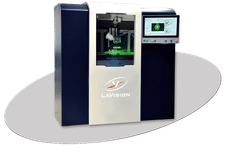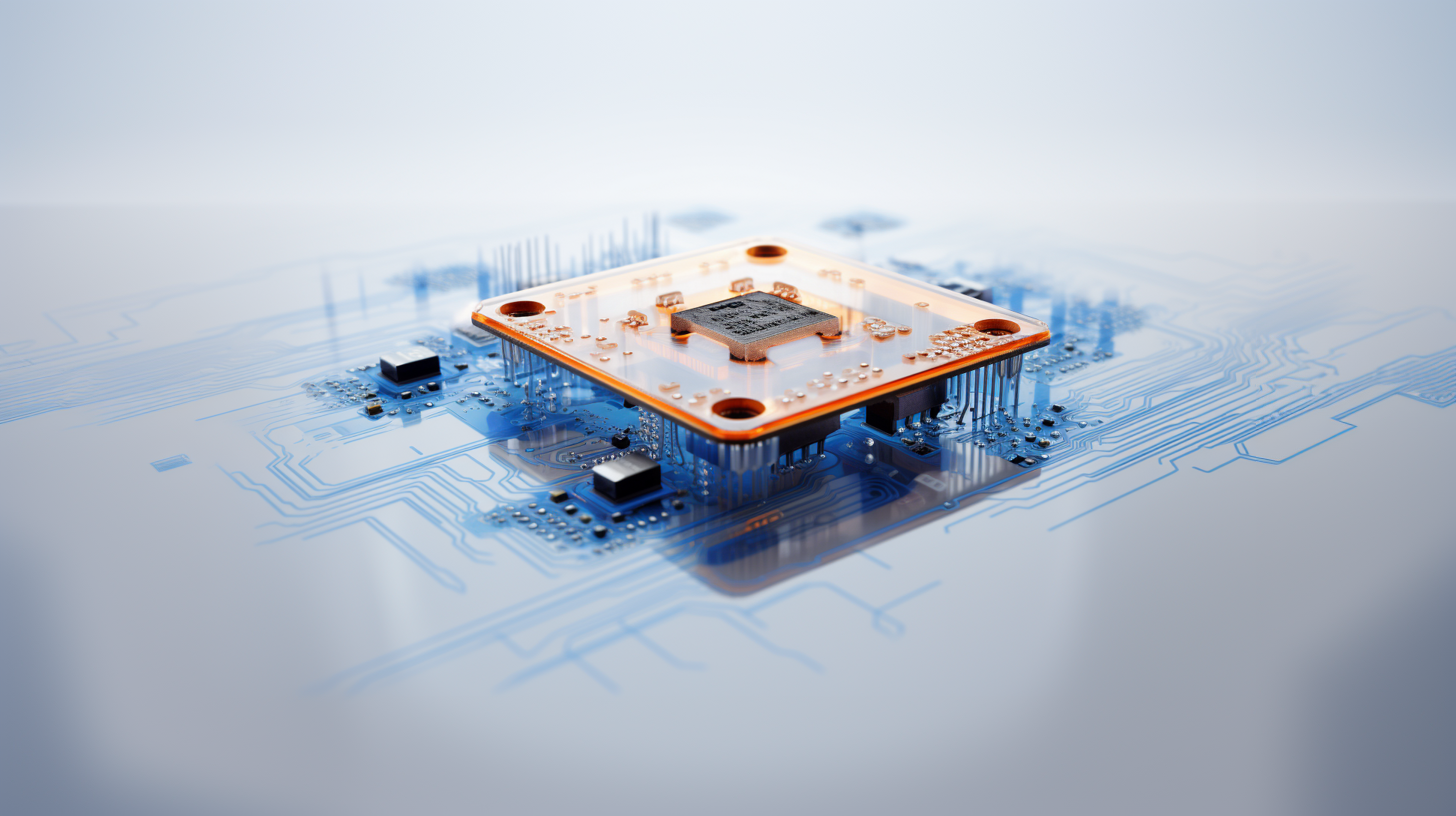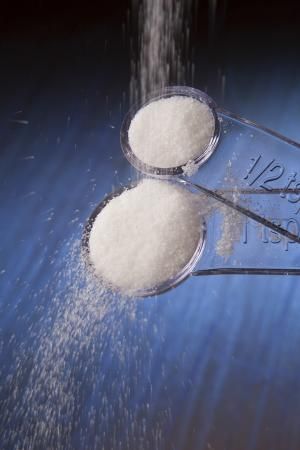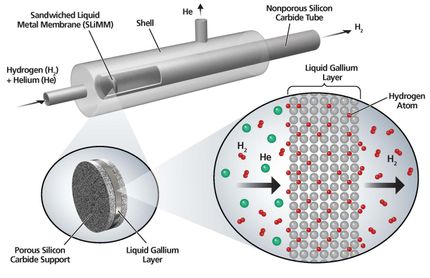Energy-autonomous sensors in logistics: continuous control of perishable goods
The safety and quality in the food supply of today’s globally organized and networked supply chain is everything else than warranted. More than 50% of all foodstuffs are spoiled in the transport routes; alone in Great Britain this makes up 17 million tons and approximately 20 billion Euros. Intelligent measurement techniques – specifically applied – can sustainably save energy resources. Inside the Fraunhofer »Food Chain Management« Alliance, Fraunhofer IPM is developing different measurement systems for the online monitoring of foodstuffs. The use of gas chromatography in connection with metal oxide semiconductor sensors permits economical online control of processes in the food industry. A combination of gas chromatography and an optical ethylene measurement system monitors the quality of foodstuffs and safety for fruit, vegetables and also fresh meat. In a banana storage unit or container, the climatic technology can be efficiently controlled on the basis of the determination of the ethylene concentration, and this also applies to greenhouses.
Economic control of the transport routes of perishable goods
Since the start of last year, in collaboration with European partners in the »RFID Pro¬Active Cold Chain« project, the Fraunhofer IPM has been developing UHF-RFID tags with integrated sensoring in order to seamlessly document the transport routes of perishable goods such as medications, especially vaccines or foodstuffs. Moisture sensors also prevent rusted steering axes and help to save time and energy in this way. Temperature sensors are meant to sense the surroundings quickly and without contact, and thus control the climate technology in an as energy-efficient manner as possible. For instance, they raise the alarm as soon as the cooling chain is interrupted.
Clean air: Imission monitoring
Fraunhofer IPM is also active in imission monitoring. Besides optical systems for determining methane, the gas measurement system includes electrochemical elements for detecting ozone and CO; as well as semiconductor sensors, and temperature and moisture sensors. The aim is to create a mobile dynamic environmental cadastre for recognizing pollutant concentrations and counteracting them. With the aid of this complete measurement system, an important contribution is made towards achieving climatic protection goals and implementing the Air Pollution Regulation.
At the Sensor+Test 2010, Fraunhofer IPM is exhibiting sensing RFIDs, compact gas measurement systems, e.g. for ethylene, or gas sensor arrays for detection of gases and gas mixtures, as well as a gas-sensitive metal-oxide thin-film transistor. Interested parties can also inform themselves on measurement systems: a light source for infra-red spectroscopy, multi-reflection cells and fast modulating IR emitters for the 5 μm to 12 μm wavelength range.
Future technology thermoelectrics: energy-autonomous systems use waste heat
More than 60% of the overall used fossil primary energy is wasted as unused heat energy according to a study of the Lawrence Livermore National Laboratory. Thermoelectric generators are able to utilize the energy portion of lost heat – at least partially – for instance, in firing plants in industrial processes, and especially in the automobile, and convert it into electric current. That this works is shown in thermoelectric generators in space where they have been used for decades as extremely reliable suppliers of energy for probes and satellites – emission-free, silent and vibration-free. Fraunhofer IPM is demonstrating this with a Carrera track, at which visitors can take part in car races. The model racers are powered by thermoelectric generators of bismuth or lead telluride. Moreover, energy-autonomous radio sensors use waste heat and thus cover many applications. In the car they can help to save weight as heavy cables are superfluous. The sensors also aid with monitoring old buildings. They can simply be stuck to the walls where, for example, they measure the moisture. They are even applicable in the field of medicine. In this way, sportspersons can measure their pulse via a sensor system built into their T-shirts, or use hearing aids which obtain their power from body heat.
Other news from the department science
These products might interest you

SprayMaster inspex by LaVision
Quality Control for Your Spraying Process Through Digital Spray and Particle Analysis
Reliable, Automated, Digital - The Geometry Measurement of Your Spraying Process in Real Time

FireSting-PRO by PyroScience
New fiber optic measuring device: Precise measurements even in the smallest volumes
Measure pH, oxygen and temperature even under sterile conditions

VEGAPULS | VEGABAR | VEGASWING by VEGA Grieshaber
Cyber-safe level measurement - here's how it works
Find out more about the unique sensor for liquid and solid media

Get the chemical industry in your inbox
By submitting this form you agree that LUMITOS AG will send you the newsletter(s) selected above by email. Your data will not be passed on to third parties. Your data will be stored and processed in accordance with our data protection regulations. LUMITOS may contact you by email for the purpose of advertising or market and opinion surveys. You can revoke your consent at any time without giving reasons to LUMITOS AG, Ernst-Augustin-Str. 2, 12489 Berlin, Germany or by e-mail at revoke@lumitos.com with effect for the future. In addition, each email contains a link to unsubscribe from the corresponding newsletter.
Most read news
More news from our other portals
See the theme worlds for related content
Topic world Gas chromatography
Gas chromatography is an essential method in analytical chemistry for the separation and analysis of volatile compounds. Due to its high resolution and sensitivity, it has become firmly established in areas such as environmental analysis, food chemistry or forensic science. GC provides precise and reliable results and enables deep insights into the chemical composition of samples.

Topic world Gas chromatography
Gas chromatography is an essential method in analytical chemistry for the separation and analysis of volatile compounds. Due to its high resolution and sensitivity, it has become firmly established in areas such as environmental analysis, food chemistry or forensic science. GC provides precise and reliable results and enables deep insights into the chemical composition of samples.
Topic World Spectroscopy
Investigation with spectroscopy gives us unique insights into the composition and structure of materials. From UV-Vis spectroscopy to infrared and Raman spectroscopy to fluorescence and atomic absorption spectroscopy, spectroscopy offers us a wide range of analytical techniques to precisely characterize substances. Immerse yourself in the fascinating world of spectroscopy!

Topic World Spectroscopy
Investigation with spectroscopy gives us unique insights into the composition and structure of materials. From UV-Vis spectroscopy to infrared and Raman spectroscopy to fluorescence and atomic absorption spectroscopy, spectroscopy offers us a wide range of analytical techniques to precisely characterize substances. Immerse yourself in the fascinating world of spectroscopy!
Topic world Sensor technology
Sensor technology has revolutionized the chemical industry by providing accurate, timely and reliable data across a wide range of processes. From monitoring critical parameters in production lines to early detection of potential malfunctions or hazards, sensors are the silent sentinels that ensure quality, efficiency and safety.

Topic world Sensor technology
Sensor technology has revolutionized the chemical industry by providing accurate, timely and reliable data across a wide range of processes. From monitoring critical parameters in production lines to early detection of potential malfunctions or hazards, sensors are the silent sentinels that ensure quality, efficiency and safety.
Last viewed contents
Tellurobismuthite
The_fMRI_Data_Centre
Laser-induced_breakdown_spectroscopy
Pine_Bluff_Chemical_Activity





























































